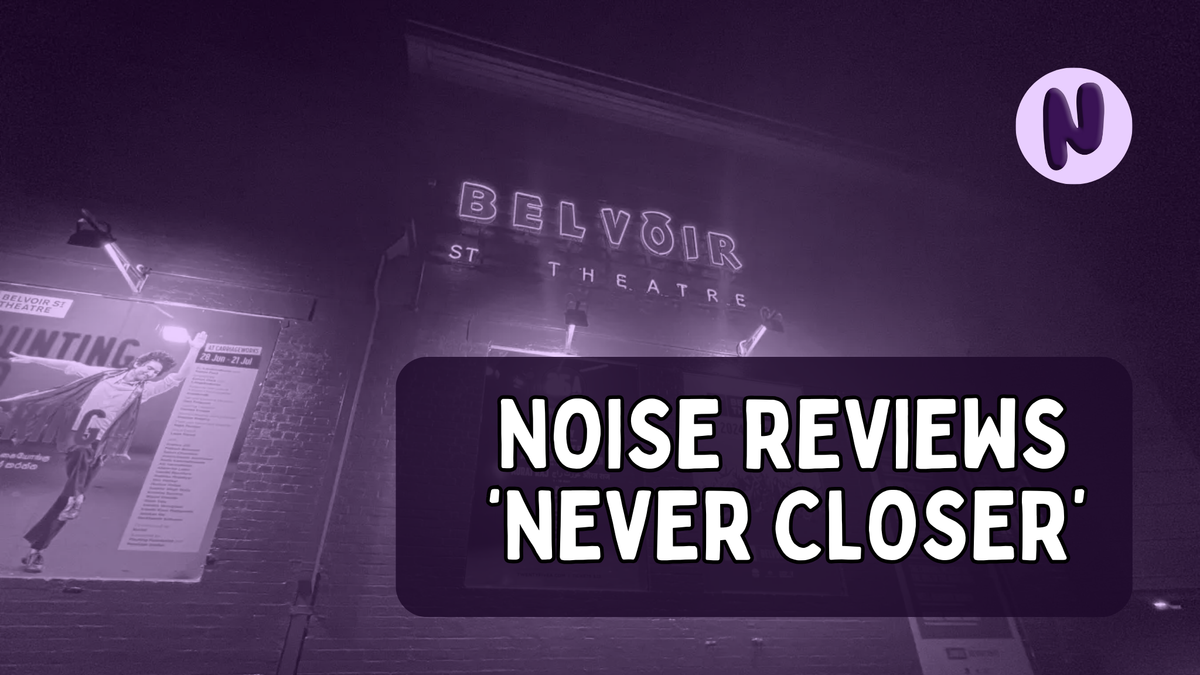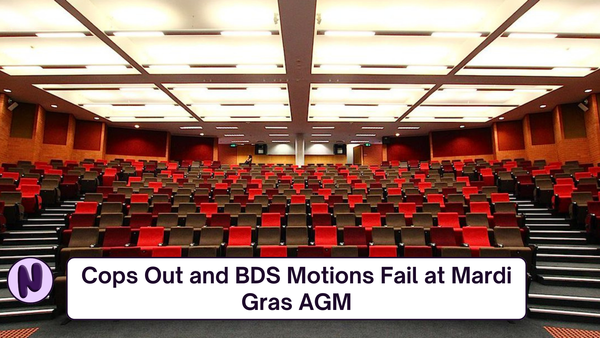Noise Goes to Never Closer
Members of the Noise team went to see the production of Never Closer at the Belvoir Street Theatre. This is what they thought.

A few weeks ago, two Noise writers had the opportunity to attend a production of Never Closer by Grace Chapple at the Belvoir Street Theatre with complimentary media tickets. The play is one of only a small few that have made it from the Belvoir’s downstairs theatre to the mainstage, and in our opinion, rightfully so. While centred around the conflict in a border town in Northern Ireland during The Troubles, the piece also explores complex themes of grief, love, friendship, escapism, and ultimately what it means to grow up and leave the past behind.
Plot Summary
Never Closer tells the story of a group of childhood friends - Deirdre, Jimmy, Naimh, Mary, and Conor - who surprisingly reconnect on Christmas Eve, a decade after their last meeting. In their teenage years, the boisterous group drank whiskey, and shared ghost stories, and romantic tension was in the air for Diedre and Jimmy. Now Diedre is dating Conor and grieving her mother's passing, while Conor drinks away the murder of his father as his strong allegiance to a united Ireland brews. Jimmy drops in first, surprising Diedre. He laments about his choice to stay on his family farm instead of following his music career all in the hopes Diedre would finally want to be with him.
Mary joins them next, after moving to Dublin for her hotshot new job but still retains the same spirited humour.
Niamh has been living in London for a decade and contact has lapsed but she drops in on the group unannounced with not only a new look and posh accent but also her new fiancé who is English. This sparks a very chaotic and emotionally charged evening.
Performance
The performances in this production were more than exceptional. There’s no one actor that stands out because they all portray their respective characters and all of their facets stunningly and without apprehension; authentic accents included. The majority of the play is seriously funny; we, the rest of the audience, and the actors themselves couldn’t stop laughing, even during some more intense moments. The humour is definitely Irish, but with a little context, it really hooks Australian audiences in.
Speaking of the context, due to this play being set during a time of an ethno-nationalist conflict there are obviously some intense and surprising moments that remind us what’s actually going on for these characters behind the humourous mask and that the conflict is wholly negative in its effects for all of them. This is deeply relevant at this time in our history considering the anti-colonialist sentiment expressed in many countries worldwide recently and the colonial wars that are currently being fought in several notable places.
The pacing and tone shifts are done wonderfully and really point to how these characters have tried to escape what they're facing in many different ways but can’t seem to detach from their home fully. The quick tone switches between civil and even playful interaction to full-on fighting, especially the absolutely unhinged behaviour Conor displays, further emphasises this divide between those who could move on from their teenage years and those who struggled as well as how volatile and divisive war can be for individuals. You laugh, scream, cry, and grieve with every character through all they experience despite their many challenges and flaws.
Overall the performance is intensely compelling, heartfelt, hilarious and sometimes chilling but ultimately ends with a sweet and satisfying cyclical story.
Direction and Set
Hannah Goodwin’s direction was innovative and went against the usual ‘rules’ of theatre with characters often facing away from the audience and acting just as naturally as they would if they were truly in a childhood home. This was added to by the chaotic and childish interactions between the cast in both eras signifying their attachment to those times.
The living room/kitchen of Diedre’s family home was the singular set of the play which changed very slightly as the play went on to emphasise the way in which the rest of the group grew up and changed but Diedre wasn’t able to.
The direction of tone shifts mentioned previously are also masterful in breaking past the humour and making a deeper impression on the audience of how the war has affected these characters.
Overall Impression
This production of Never Closer was a triumph and a must-see. The strong characters, thoughtful performances, and direction produce a compelling and deeply emotional watch. We would highly recommend it to anyone.




